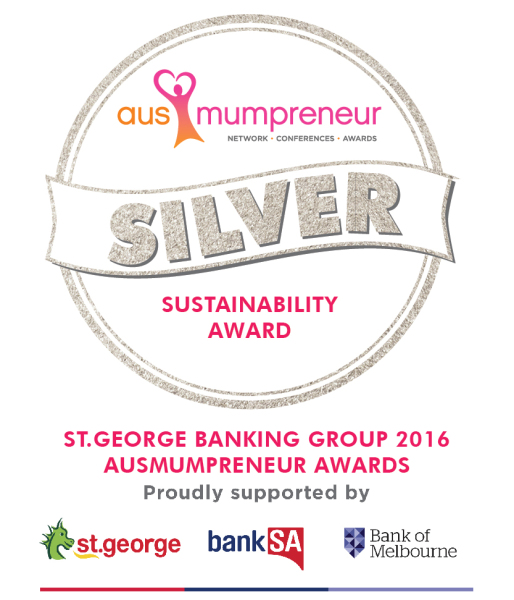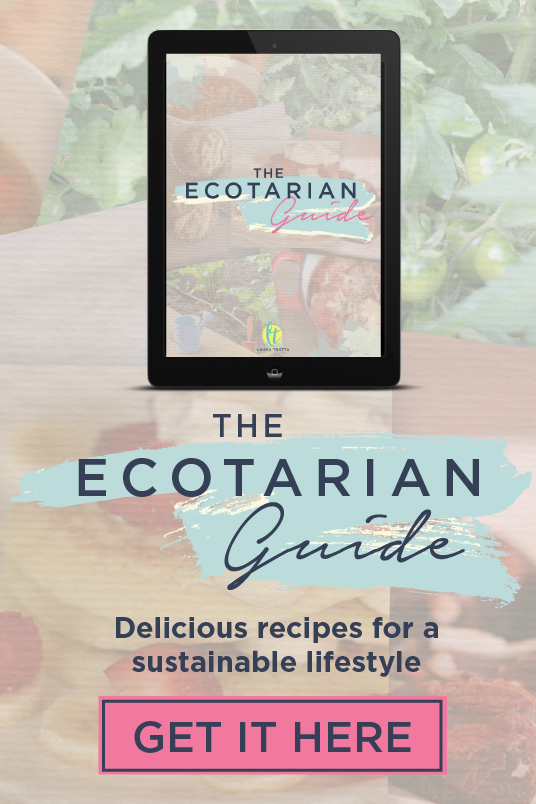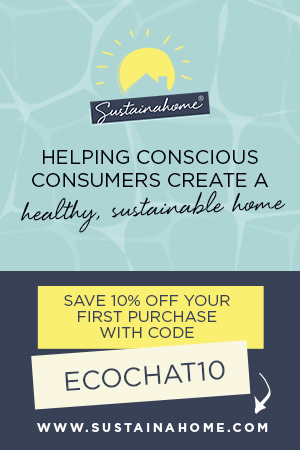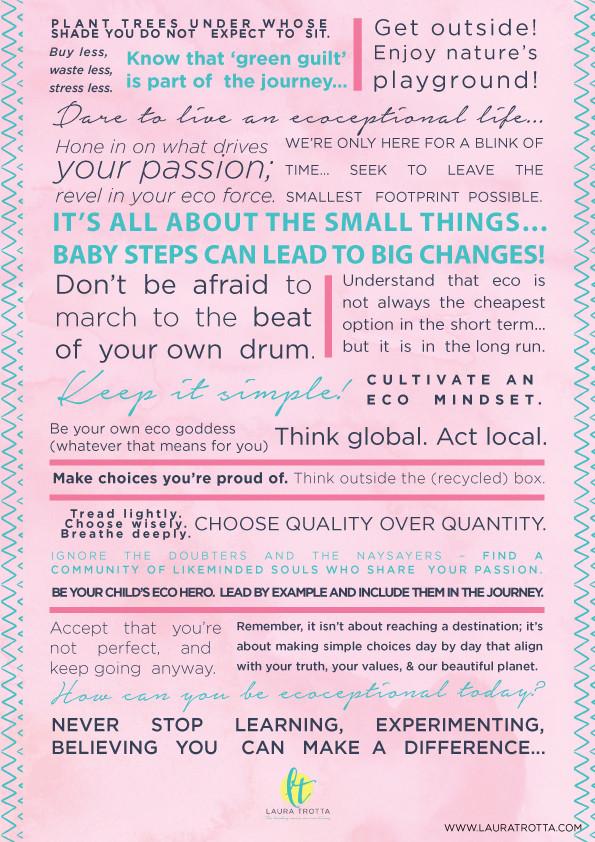So you may be trying to eat a healthy, unprocessed diet and do the ‘right thing’ by your body, but are you making the right choices when it comes to the environment?
In this post I’ll share some of my best tips on sustainable eating including what is the most sustainable diet.
Podcast: Play In New Window
Before I dive in though I’d like to point out that I’m an environmental professional, not a dietician or nutritionist. Views in this article are mine alone and are backed by years of study and experience in the environmental science arena. It’s important to note that as a race we will not thrive in an environment that is not healthy; we often fail to realise that humans are an endangered species too!
What Is a Sustainable Diet?
In a nutshell, a healthy sustainable diet is about producing nutritious food without degrading the environment.
According to the United Nations…….
“Sustainable Diets are those diets with low environmental impacts which contribute to food and nutrition security and to healthy life for present and future generations. They are protective and respectful of biodiversity and ecosystems, culturally acceptable, accessible, economically fair and affordable; nutritionally adequate, safe and healthy; while optimizing natural and human resources.” (Source)
It’s clear that a sustainable diet is not just about optimum health for the human. It’s about eating a healthy, balanced diet that’s in tune with the environment, while still enabling the Earth to easily provide for future generations.
Why Is Sustainable Eating Important?
With so many people struggling to eat a healthy diet (the high rates of obesity and diabetes speak for themselves) it can be hard to wrap your head around the concept of sustainable eating and its importance.
But what if I told you that the very survival of our species depends on us, as a species, changing the way we eat?
That’s alot to swallow I know!
With the world’s human population predicted to increase from its current 7.5 billion to 10 billion by 2050, it is one of the most inconvenient truths that needs to be addressed….. quickly.
Agriculture is the largest land use on Earth and with more and more wilderness areas like rainforests being transformed into plantations, farms or just grazing land for livestock, we could very well be faced with the scenario of humans eating ourselves out of house and home within our lifetime. Put simply, we will run out of space to grow the food we need to survive and we will continue to witness massive losses of biodiversity as our impact on this planet increases with our growing population.
Scientists have already identified that we’re in the brink of the Sixth Extinction. Unlike the other five mass extinction events that have occurred during the Earth’s 3.5 billion year history, such as that which wiped out the dinosaurs, humans are the driving force behind this event.
But it’s not just the changing landuse and subsequent loss of biodiversity that accompanies a growing global human population. Intensive agricultural practices together with synthetic fertilizers and pesticides degrade our soils and impact the health of workers and nearby communities, livestock are the no.1 emitter of greenhouse gases (and therefore climate change!), there is a growing reliance on genetically-modified crops and more than one third of our oceans are over-fished. If these are an example of current impacts of agriculture, what will the environmental impacts of our diet be when our global population reaches 10 billion people?
We can continue to eat ourselves out of house and home OR we can eat more sustainably and give current (yes, this will happen in OUR lifetime) and future generations the gift of a good quality of life.
I could continue to list the many (sometimes depressing) reasons why we need to eat more sustainably, but I’d prefer to give you strategies you can use right now to reduce the environmental impact of your diet…….. which leads perfectly into the next point……
What Is The Most Sustainable Diet?
Okay, so it’s clear we need to take the environment into account when choosing what we eat, but what is the most sustainable diet?
This is a really heated question because food has a much greater significance in our lives than just nourishment.
Our family, religious and cultural traditions feature food. Think Easter, Thanksgiving, Christmas, Ramadan.
There are also several ways of eating, or diets, which claim the most sustainable label.
But if we need to change the way we eat for the health of the planet, what diet should we eat?
Paleo, organic, vegan, Mediterranean, sugar free, raw, vegetarian, wholefoods?
A combination of these?
None of these?
A sustainable diet firstly needs to be sustainable for YOU. There’s no point you eating vegan for one week and then binging out on everything you deprived yourself of.
What I’m saying is that perfection isn’t sustainable.
Also, one way of eating may suit your best friend but not suit you. I myself was vegetarian for many years in my 20’s but I found I needed to change my diet to help me cope with the demands of pregnancy, breastfeeding and raising a young family in my 30’s. This involved reintroducing some meat and meat products like bone broths to maximise my intake of nutrients. BUT I was very selective of the type of meat I introduced…..
So what is the most sustainable diet?
It’s all of the above and none of the above.
It’s primarily an organic wholefoods diet but it’s so much more than that because a wholefoods diet where you eat unprocessed foods that have been shipped in from around the globe (think Himalayan Rock Salt from Pakistan, Gelatine from Northern America, frozen berries from Chile, Rapadura Sugar from Sri Lanka, maple syrup from Canada) is definitely not sustainable or environmentally friendly in the true sense of the word.
The most sustainable diet is taking an extra step forward and going beyond wholefoods. It’s what I like to call, being an Ecotarian.
What is an Ecotarian?
Being an Ecotarian is :
- Eating foods that are grown and produced LOCALLY (including foods you have GROWN YOURSELF or supporting FARMERS MARKETS)
- Eating fresh foods that are IN SEASON
- Preserving, fermenting or drying foods to enjoy when OUT OF SEASON
- Eating a diet rich in WHOLEFOODS
- Avoiding PACKAGED foods and drinks (yes drinks are part of a diet too!)
- Being super mindful of meal planning and loving your leftovers in order to ELIMINATE FOOD WASTE
Where Does Meat Fit Into This Picture?
There’s no denying that meat has been an important component of the human diet since our caveman days but does it still have a place in our diet of the future?
Before you decide that for yourself, it’s worthwhile considering some of the environment issues around consuming meat, which include:
- Livestock production for human consumption is listed as the largest emitter of greenhouse gases on the planet.
- Intensive, factory-farmed meat production uses an unsustainable amount of grain crops, water and land (most are grown in developing countries)
- 26% of terrestrial land surface is used for grazing (20-70% of this land is considered degraded)
- One third of world’s fisheries are over-fished and under threat……
For the world’s population to grow from 7.5 billion to its estimated 10 billion by 2050, we do need to change the way we eat and the type of meat we eat and how frequently we eat it definitely needs to change.
The cost of meat will gradually continue to rise and place pressure on households who eat a diet high in animal products. However educating people about the impact of eating meat, both on their health and the environment may be more effective in changing behaviour.
Click here to discover what is the most sustainable meat.
Can Eating Meat Be Sustainable?
Many vegans choose not to eat meat or meat products for animal welfare reasons and that is warranted, especially in this day and age of factory farms and intense agriculture.
But telling the world to stop eating meat isn’t necessarily going to have the desired effect.
My experience as an environmental educator is that most people want to eat meat, which means the challenge is in changing HOW people eat meat.
I believe it’s not necessarily about whether you do or don’t choose to eat meat (although if the entire world ate a predominantly plant-based diet it sure would solve many issues!), it’s about the type of meat you eat, how often you eat it and how far you stretch it…….
Organically, ethically-raised meat from a farm that uses regenerative farming practices that restore the soil is in a total different ball park to factory-farmed meat fed grains and corn that are grown in a separate area to where the animal is housed.
Buying a smaller quantity of meat that has been sustainably produced is a win for your health and a win for the environment. Of course this meat will cost more, but your dollar will be going towards shaping the kind of world you want.
Meat-free Mondays have gained in popularity in recent years as a result of organisations promoting people to reduce their consumption of meat. If you eat meat, I encourage you to gradually challenge yourself to a Meat-Monday and Meat-free rest of the week!
Becoming more creative in the kitchen and moving from having meat being the centrepiece of a meal, to having it added in smaller quantities will pay off in regards with the family budget, health and the environment too!
Stir fires, casseroles, soups, frittatas are all super nutritious and healthy and much kinder to the environment than eating meat and three veg every night. If you’re roasting anything, be sure to save the bones and make a tasty bone broth too, or do what I do and save bones from casseroles too (organic chicken drumsticks are an economical way to feed the family and are much more affordable than organic chicken thighs or breasts).
Although fish is recommended as a healthy diet option, in most of the world’s fisheries fish are being removed from their habitats faster that they are able to reproduce, and though not all species are overfished, the interconnected nature of the oceans ecosystems means that the depletion of one species can affect many other species. If you enjoy eating seafood, try and keep it to an occasional treat.
Eating sustainably is quite possibly the biggest impact we can make to improve the condition of the global environment. Choosing to eat organic, local produce, taking steps to eliminate food waste and reducing your meat consumption will make a significantly positive change to your health, bank balance and the state of the world.
Remember, the dollars you spend today shape the world of tomorrow and everyone can make a difference.
So, what changes will you make to your diet to ensure it’s more sustainable?
Like this post? You may also like….
- What Is The Most Sustainable Diet,
- What is the Most Sustainable Salt?
- Regenerative Farming and It’s Role In Healing Our World (with Joel Salatin from Polyface Farm),
- 7 Ways To Smarten Up Your Meat Consumption,
- 5 Simple Ways To Include More Plant-Based Foods in Your Diet,
- What Is The Most Sustainable Meat?
Keen to discover what other “Eco Bombs” are lurking in your pantry? Download my FREE eGuide “10 Simple Swaps To Eco-Fy Your Pantry” here.
Podcast: Play in new window | Download
- Sustainable Home Design- factors to consider to maximise sustainability - July 28, 2022
- Advantage and Disadvantages of Tiny Houses - May 31, 2022
- How School Strike 4 Climate is Empowering Youth to Fight for Their Future - May 1, 2022

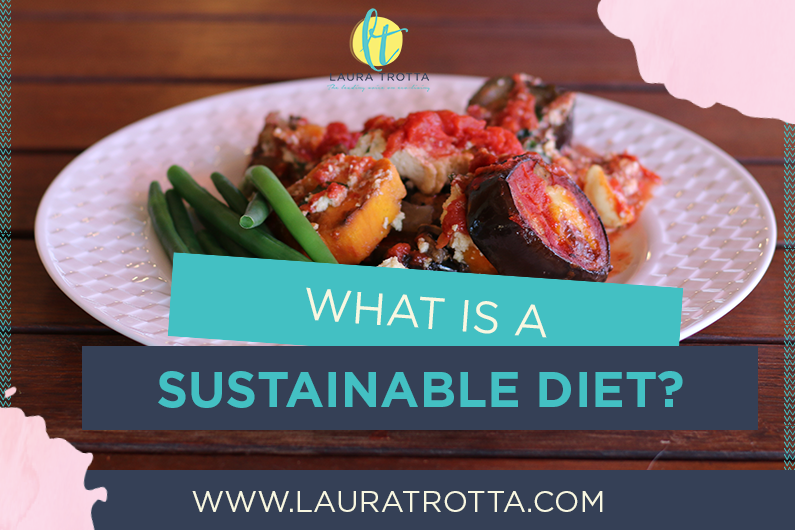
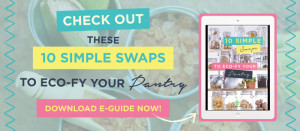
 Laura Trotta is one of Australia’s leading home sustainability experts. She has a Bachelor of Environmental Engineering, a Masters of Science (in Environmental Chemistry) and spent 11 years working as an environmental professional before creating her first online eco business, Sustainababy, in 2009. She has won numerous regional and national awards for her fresh and inspiring take on living an ‘ecoceptional’ life (including most recently winning the Brand South Australia Flinders University Education Award (2015) for the north-west region in SA and silver in the Eco-friendly category of the 2015 Ausmumpreneur Awards). With a regular segment on ABC Radio and with her work featured in publications like Nurture Parenting and My Child Magazine, Laura is an eco thought leader who’s not afraid to challenge the status quo. A passionate believer in addressing the small things to achieve big change, and protecting the planet in practical ways, Laura lives with her husband and two sons in outback South Australia.
Laura Trotta is one of Australia’s leading home sustainability experts. She has a Bachelor of Environmental Engineering, a Masters of Science (in Environmental Chemistry) and spent 11 years working as an environmental professional before creating her first online eco business, Sustainababy, in 2009. She has won numerous regional and national awards for her fresh and inspiring take on living an ‘ecoceptional’ life (including most recently winning the Brand South Australia Flinders University Education Award (2015) for the north-west region in SA and silver in the Eco-friendly category of the 2015 Ausmumpreneur Awards). With a regular segment on ABC Radio and with her work featured in publications like Nurture Parenting and My Child Magazine, Laura is an eco thought leader who’s not afraid to challenge the status quo. A passionate believer in addressing the small things to achieve big change, and protecting the planet in practical ways, Laura lives with her husband and two sons in outback South Australia. 